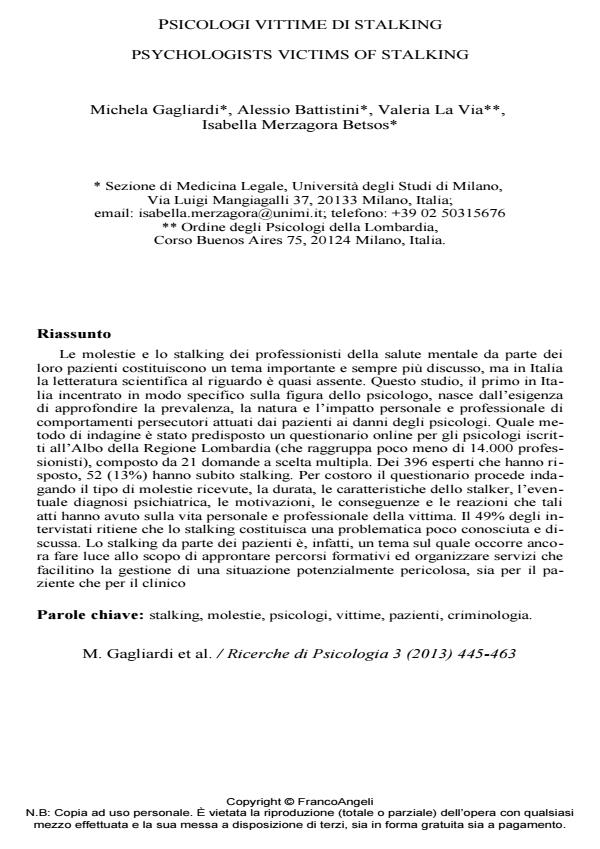Psychologists victims of stalking
Journal title RICERCHE DI PSICOLOGIA
Author/s Michela Gagliardi, Alessio Battistini, Valeria La Via, Betsos Merzagora
Publishing Year 2014 Issue 2013/3
Language Italian Pages 19 P. 445-463 File size 156 KB
DOI 10.3280/RIP2013-003003
DOI is like a bar code for intellectual property: to have more infomation
click here
Below, you can see the article first page
If you want to buy this article in PDF format, you can do it, following the instructions to buy download credits

FrancoAngeli is member of Publishers International Linking Association, Inc (PILA), a not-for-profit association which run the CrossRef service enabling links to and from online scholarly content.
Harassment and stalking towards mental health professionals by their patients constitute an important and increasingly discussed issue, but in Italy the scientific literature is almost absent. This study is the first in Italy specifically focused on the figure of the psychologist: it investigates the prevalence, nature and personal and professional impact of persecutory behaviour of patients against psychologists. As a method of inquiry has been set up an online questionnaire for psychologists registered with the Lombardy Psychologist Register (which includes almost 14,000 professionals), composed of 21 multiple-choice questions. A total of 396 professionals responded the questionnaire, and among them 52 (13%) experienced stalking. For these clinicians the questionnaire proceeds investigating the type of harassment received, the duration, the characteristics of the stalker, any psychiatric diagnosis, reasons, consequences and reactions that such events have had on personal and professional life of the victim. Stalking constitutes a little known and discussed issue for 49% of psychologists. Stalking by patients is, in fact, an issue that requires further study in order to organize training services that can allow the management of a potentially dangerous situation for both the patient and the clinician.
Keywords: Stalking, harassment, psychologists, victims, patients, criminology
Michela Gagliardi, Alessio Battistini, Valeria La Via, Betsos Merzagora, Psicologi vittime di stalking in "RICERCHE DI PSICOLOGIA " 3/2013, pp 445-463, DOI: 10.3280/RIP2013-003003